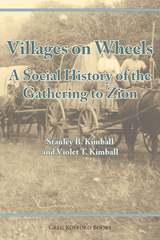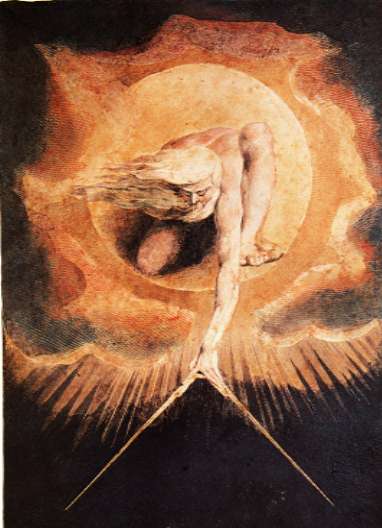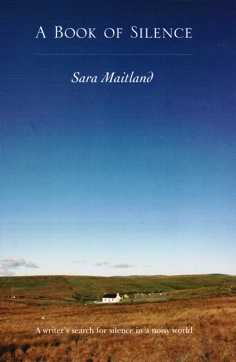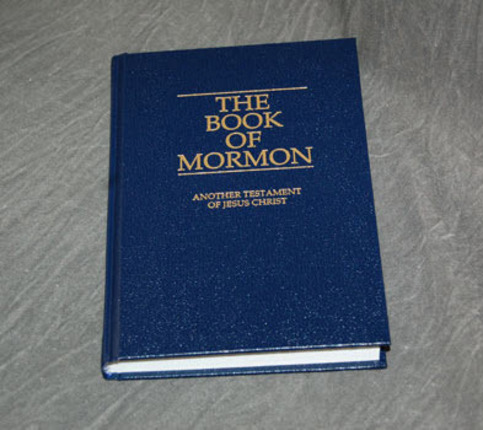-
•
•
144 responses
Caroline Winter’s new article is a must-read. She examines many facets of the church’s estimated income, its property ownership, and its use of funds. I thought many portions of it were very, very good. Readers seem especially focused on a few key portions of the article. However, one of her key fact claims is based on a factual error. Here is why. Winter writes that: According to an official church Welfare Services fact sheet, the church gave $1.3 billion in humanitarian aid in over 178 countries and territories during the 25 years between 1985 and 2010. A fact sheet from… Read More
-
•
•
4 responses

The 4th of July is a week of intense patriotic celebration in Provo. Freedom Festival is the biggest party of the year here. People go all out with block parties, fireworks, parades, races, and art contests. We end the week exhausted. As a relative newcomer to Utah Valley, I’ve wondered why is Independence Day is such a big deal here. It turns out that Provo is simply upholding pioneer tradition: “Both Mormons and American travelers commemorated July 4th with elaborate patriotic observances. They generally stated at daybreak with gun and cannon salutes, and continued with cheers, speeches, toasts, feasts, parades,… Read More
-
•
•
44 responses
For some time I’ve been trying to build a list of Mormons playing soccer throughout the world, and over time I think I’ve come up with a start of one. So far I’ve found about a dozen Mormons who have ever played professional soccer somewhere in the world. Amazingly enough, three of these have played at the World Cup level. But only 2 of these are playing now, and one of these two is playing in the U.S. In addition one Mormon is coaching at the professional level and another at the NCAA Division I level (outside of the BYU… Read More
-
•
•
One response
Today Alma’s discourse on the development of faith in Alma 32 is well known among Mormons and widely referred to on almost any discussion of faith. The “nourishing” of seeds and plants is, of course, common in poetry — its the comparison of seeds and growth with faith or the word that is important to Mormonism. I haven’t researched whether or not this discourse was used frequently like it is today. But there are elements of the idea and description in the chapter which can be found in some early Mormon poetry. Parley P. Pratt used it in the following… Read More
-
•
•
-
•
•
14 responses

One of the things almost sure to be heard in testimony meeting after someone has traveled (whether it’s across the ocean or just to the next town over) is an expression of gratitude that “the Church is the same no matter where you go.” To a certain extent, it’s true. We all sing the same hymns, although every ward congregation seems to have its particular favorites. We all read the same scriptures. Sunday meetings follow the same general format, even if the meetings are in a different order. Thanks to Correlation, Sunday School and other lesson manuals are standardized and… Read More
-
•
•
9 responses

Heinrich von Ofterdingen by Novalis is one of the founding documents of Romanticism. The novel is perhaps most famous for the title figure’s vision of a blue flower in the first chapter. What is not as well known is how Heinrich’s family drama is also the ecclesiology of Mormonism. Read More
-
•
•
16 responses
Intellectual life is a social endeavor, involving both a community of participants and institutions that support their activities. In this post I discuss some of the key elements of the ecosystem that is needed for a flourishing intellectual culture. In my view, these key elements include scholars, conferences, publishers and publications, academic positions, and graduate programs. At the moment, while Mormon Studies has some version of each of these elements, they are all quite limited and in many cases rather rudimentary. Yet in standard ecological fashion, each of these elements symbiotically depends on the others, and I’ll discuss why. It… Read More
-
•
•
18 responses

Chapter 4 of Exploring Mormon Thought (Vol. 2) surveys and critiques traditional approaches to the doctrine of original sin. Chapter 5 will give us Ostler’s own approach to the problem. I haven’t read chapter 5 yet (Joe will address this chapter soon), but chapter 4 has got me thinking about original sin. Read More
-
•
•
10 responses

A couple of months ago I received a review copy of Saints of Valor: Mormon Medal of Honor Recipients (Greg Kofford Books, 2011; 430 pages in paperback | publisher’s page). I’m going to first discuss two issues related to war and Mormonism: (1) how Mormons serving in the military improve the public perception of Mormonism; and (2) the ambiguous position of Mormonism on participation in war versus pacificism. Then I will provide a short discussion of the book itself. War and Mormonism The willingness of LDS volunteers of the Mormon Battalion to serve in the US Army was largely forgotten… Read More
-
•
•
6 responses

As my children have grown and started to leave home, I find myself conflicted by the idea of Independence. Of course I want them to be independent, to go off on their own, make their own choices and even, to be frank, to require less or none of my support and effort. Its not that I’m not willing to give them support and effort, but more that just as they need to be independent, my wife and I would like fewer requirements. We, too, would like a bit more independence. Read More
-
•
•
One response
The July 16th submission deadline for the Society for Mormon Philosophy and Theology’s 2012 Annual Meeting is approaching. The conference will be held at Utah State University, September 20-22, with the theme, “Theology of The Book of Mormon.” For a fuller discussion of the theme and submission information, see the Call for Papers. Some funding is available, on a competitive basis, to defray travel costs for student presenters of up to $650 each, based on the merit of the proposal and the distance traveled. Details on travel awards also appear on the Call for Papers page. Those considering attending may… Read More
-
•
•
165 responses
I’ve been struggling to articulate to myself the difficulties that true blue Mormons have with new order Mormons. I’m not satisfied with what I’ve been able to come up with, and I hope you will be able to help me work through this. The struggles of Mormons going through a faith transition to become new order Mormons or ex-Mormons is well documented within the bloggernacle. Through online communities they are able to find support and understanding that they may even be afraid to ask for in their families and congregations. My concern in this post is the true blue Mormon.… Read More
-
•
•
4 responses

I want to recommend Sara Maitland’s A Book of Silence. I don’t know what God wants with you. But, with time, I feel more confident about what he wants from me. For a long time, I thought his silence was a rebuff. Now, I’m more convinced it’s an invitation to do likewise. The silence seems like something he wants to share. Read More
-
•
•
70 responses

The bishop told Amadou he would not be allowed to attend EFY unless the braids were cut. Amadou comes from Mali. His family settled here a few years ago and became members of the Church. Read More
-
•
•
2 responses
The chief character in Alma 30, the first of the two chapters in lesson 27, is Korihor, the anti-Christ, who preaches, among other things, the contradictory ideas that there will be no Christ and that the future can’t be known. By the end of the chapter Korihor has begged for a sign and been struck dumb. He then admits that he has been deceived by the devil. While the earliest Mormon writers didn’t face many anti-Christs (at least not those who stated as much like Korihor did), they certainly faced those they considered just as bad—such as Missouri Governor Lilburn… Read More
-
•
•
10 responses
-
•
•
112 responses
[A guest post by Professor David Earl Bohn, retired professor of political philosophy at Brigham Young University] Recently, the Maxwell Institute announced a significant change of course on its website—one that re-directs the Institute’s focus away from apologetics and Mormon-centered research and toward a more generic emphasis on religious scholarship. The “bloggernacle” had actually been abuzz about rumors of these developments since before they were officially confirmed. (For a non-exhaustive sample of related posts and articles see: here, here, here, here, here, here, here, here, here, here, here, and here). Cause for Concern Many of us who care deeply about Mormon research and scholarship have witnessed these developments unfold with some concern. … Read More
-
•
•
50 responses
Seismic changes at the Maxwell Institute have prompted reflective blog posts on the fate of FARMS and Mormon apologetics in general (The Rise and Fall of FARMS | The Legacy of FARMS | Explosive Tensions within MSR). My view: the FARMS approach has become outdated. Mormon apologetics will become more decentralized and more social as people (both LDS and non-LDS) turn to Google and Facebook rather than the bookstore, the library, or journals to get answers to their Mormon questions. Apologetics will therefore become more personal and more practical. People still want answers. Mormon.org, blogs, and Mormon Stories are the… Read More
-
•
•
9 responses
I posted the questions last week. It’s taken me much longer than I thought to hunt down my references/handouts/links, so I’m breaking the answers into two parts. 1) Nephi says several times that knowing “the things of the Jews” can help us understand Isaiah. Similarly, the “things of the Jews” can help us understand the Book of Morm on. Briefly explain two specific examples of “things of the Jews” that help us understand either Isaiah or the Book of Mormon. (4 pts.) We talked about lots of these in class. What’s interesting to me is immediately after declaring “the things… Read More
-
•
•
27 responses
Every ward or branch I’ve lived as an adult has struggled with the dilemma of how to increase a sense of unity among the Relief Society sisters. In some places, demographics have dictated a natural split between the transient (a few months to a few years) young college and graduate age students, wives, and mothers and those who live in the ward on a more permanent basis: more established families, families with grown children, and retirees. We’ve also lived in a branch split by language differences in which about half of the members spoke English as a native language, about… Read More
-
•
•
29 responses
Perhaps the main problem with the Mormon Studies Review, which led to this awful explosion in the last couple of weeks, can be crystallized by looking at the titles it has held over the years and thinking for a moment about what they mean. At first, it was the FARMS Review of Books on the Book of Mormon. It then became the FARMS Review of Books, the FARMS Review, and finally, just the Mormon Studies Review, expanding out the “MS” and dropping the “FAR” at the start. That is quite a journey, and expresses a range of personalities whose conflict… Read More
-
•
•
3 responses
The Anti-Nephi-Lehies, the focus of Book of Mormon lesson #26, have to be the most unusual group in the Book of Mormon. Their choice of pacifism is unequaled in scripture, except possibly by the people of Enoch. While the lesson concentrates on their conversion and how that led them to turn to pacifism, I think the fact that they chose pacifism is instructive, something that should make us all ponder what really matters. Perhaps their pacifist views, along with the troubles in Missouri, influenced William Wines Phelps, one of the first poets of Mormonism, leading him to write the following… Read More
-
•
•
8 responses
-
•
•
20 responses

We’ve arrived in early Alma, and so, as I did for my BYU New Testament class I taught, I provide here some questions taken from the midterms and finals of the two Book of Mormon classes I taught in 2004 and 2006. Both sections covered 1 Nephi-Alma 29, but one was a freshman section and one an RM section. These exams were open-scripture, but as with the New Testament exam, open scripture certainly did not equate to easy. I wanted to test if students were reading, thinking, and able to make use of the critical-thinking and other skills we were… Read More
-
•
•
22 responses
The most upsetting thing about the story of David and Bathsheba (2 Samuel 11) is not what he did with Bathsheba, bad as that was. That he was intrigued with her is unremarkable, even natural; she was totally hot, after all. Bringing her to the palace is a different story, disgraceful even if he had only sat her down for a chat, since her husband was away at war. Even as a phenomenally successful and revered king, David displayed the priorities of a ten-year-old who’s been hanging out with bad company. I would have said “of an adolescent,” except that… Read More
-
•
•
29 responses
I’m not quite up to creating original content today, so I’m going to link and comment to a few posts and articles that caught my eye. It’s really amazing how much coverage Mormonism is getting lately compared to a few years ago. Read More
-
•
•

In the latter half of the 19th century, the principle role that New York City filled for Mormonism was as a transit point—more than 75,000 Mormon converts entered the United States through New York City during those years while several thousand missionaries sailed for Europe from New York’s port. But beginning with the Page Act in 1875 and the Chinese Exclusion Act of 1882, the U.S. began restricting immigration, beginning with Chinese and also including convicts, lunatics, and “others unable to care for themselves.” And in the late 1880s, attention on polygamy prosecution in Utah led to a provision of… Read More
-
•
•
20 responses
Ostler opens chapter 3 of The Problems of Theism and the Love of God by referring to several different individuals’ claim that the ontological commitments of Mormon theology foreclose the possibility of its embracing a defensible moral theory. Ostler then takes as his task in this chapter not only to identify what he takes to be Mormonism’s moral theory but also to argue for the possibility of such a moral theory to be fully robust despite its rootedness in a non-traditional theism. Much of the chapter is tied up in the details of an ongoing exchange between himself and Francis… Read More
